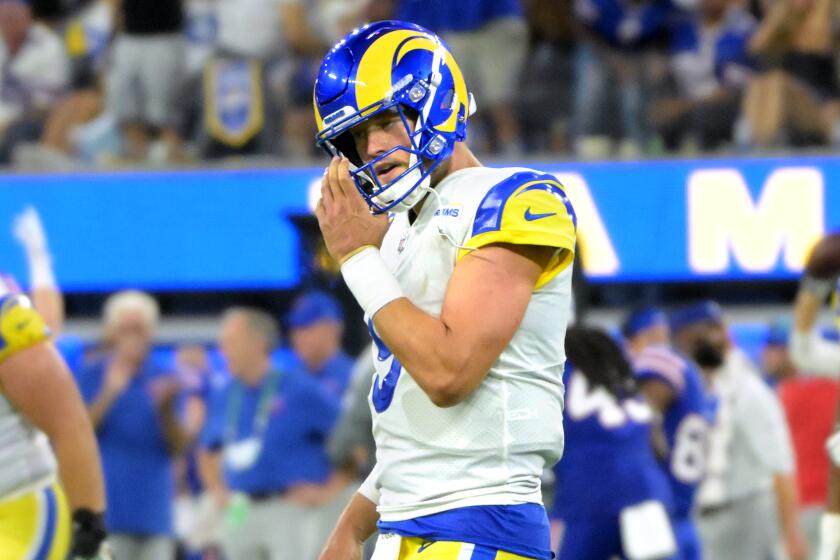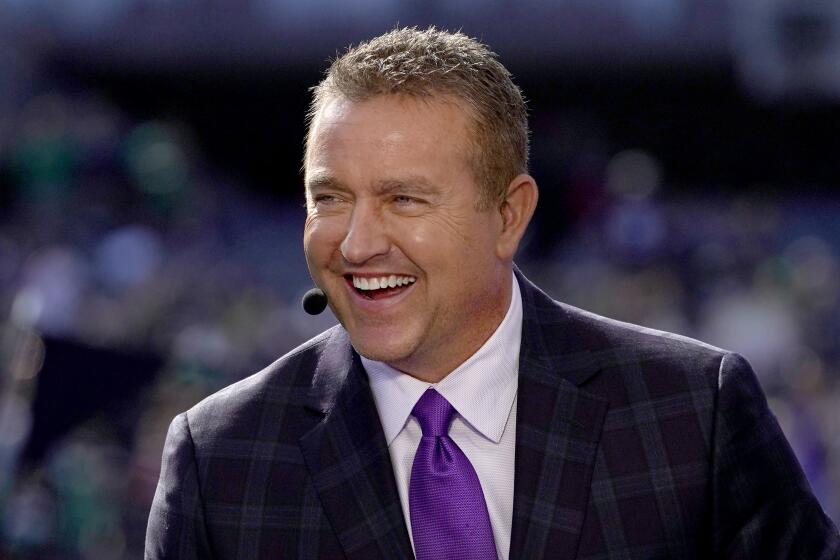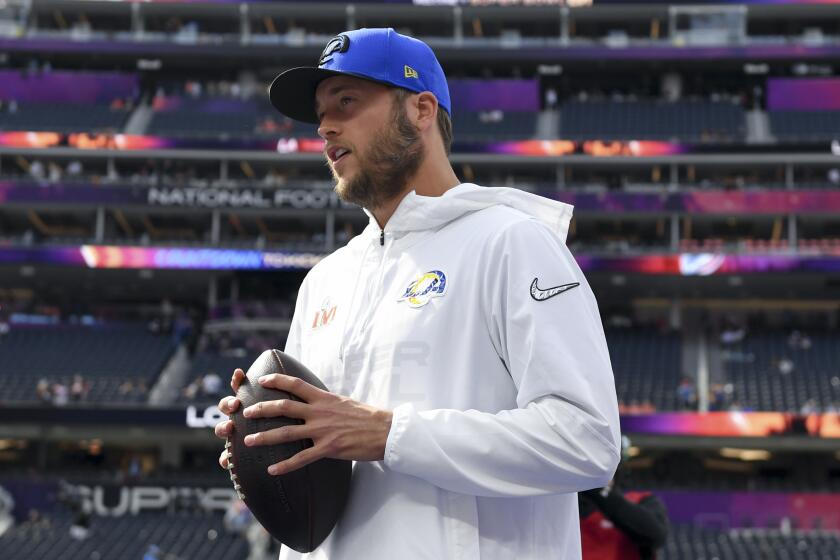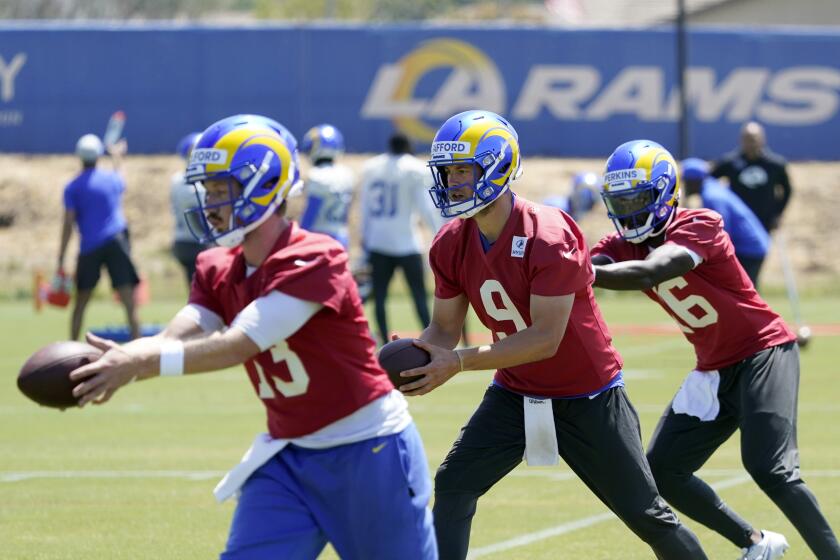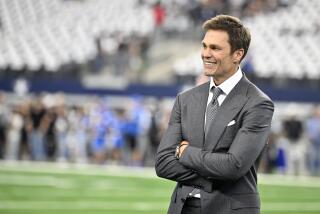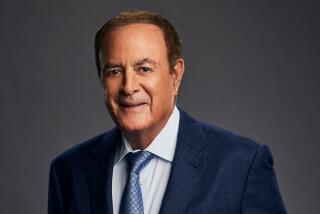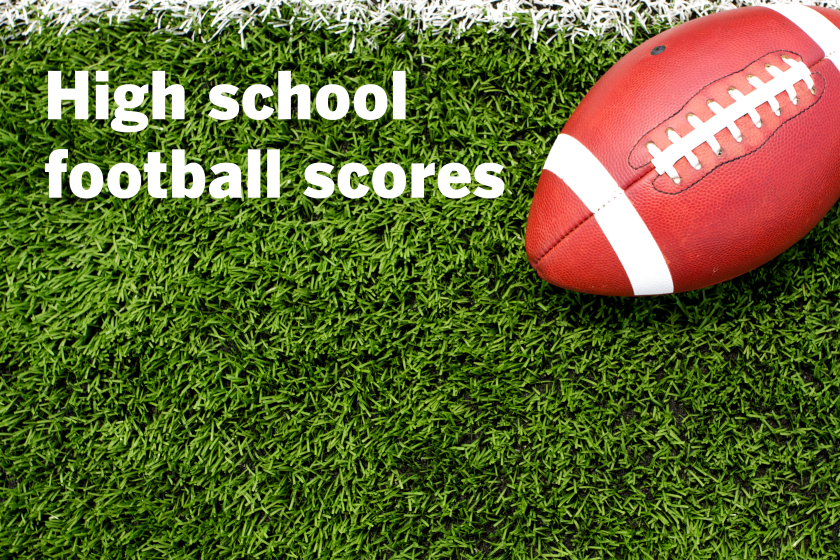Reshuffled booths, streaming, mega TV deals: Inside the changing landscape of NFL broadcasts
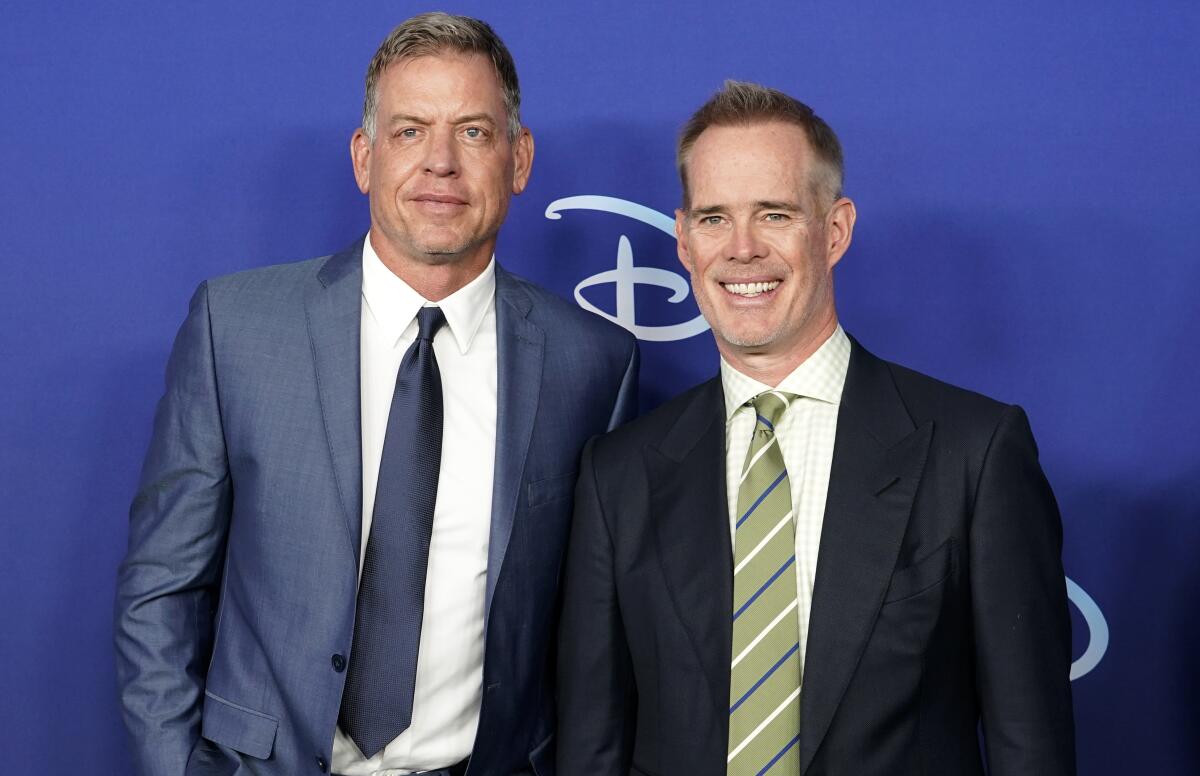
The landslide, triggered by Tony Romo, has rumbled into America’s living room.
CBS backed up the Brinks truck for Romo in early 2020, signing him to a deal that pays him $18 million per year, and that instantly reset the market for NFL announcers.
Two years later, an unprecedented reshuffling.
Al Michaels to Amazon, which will stream Thursday games. Joe Buck and Troy Aikman to ESPN. Mike Tirico promoted to the No. 1 play-by-play chair at NBC. And Jim Nantz getting a sweetened deal to stay at CBS, where he and Romo are in their sixth year and suddenly the longest-tenured active tandem at a given network.
This season gives new meaning to the term “channel surfing,” as the musical chairs in the booth mean there are new — yet familiar — football voices on Sunday, Monday and Thursday nights.
Those deals, most in the range of $15 million to $20 million annually, might be gargantuan in some respects, but they’re rounding errors in comparison to the billions these networks are spending for NFL rights. Like quarterbacks, these announcers are the face of a franchise and custodians of TV’s biggest ratings-getter by miles. NFL games were 75 of the top 100 most-watched shows last year.
As good as Josh Allen and the Buffalo Bills played, the Rams struggled with a number of issues in their first game since winning the Super Bowl.
“Nobody in the history of time has ever said, `Hey, don’t tell me who wins the Super Bowl. I’m going to watch it next weekend with my friends,’ ” Buck said. “You can’t record it and watch it at a later date. Advertisers salivate over stuff like that.”
Lots of people can prattle on about football on TV, but the extreme upper echelon — the polished storytellers entrusted by the networks to call those premier national games — is wafer thin. ESPN cycled through “Monday Night Football” hosts the way the Cleveland Browns tear through quarterbacks.
This year, ESPN paid what was necessary to upgrade to Buck and Aikman, who are in their 21st year working together, tying the longevity record of John Madden and Pat Summerall.
Why is it especially important now for league broadcast partners to put on the best possible productions? Because the best broadcast teams get the best games from the NFL.
“It’s fascinating to see that there’s been this game of musical chairs in some respects and urgency to make sure that you’re investing as an NFL partner,” Nantz said. “You’re investing into what your elite crew is going to present. The value of the broadcaster is suddenly taken to a whole new level, and it really did start with Tony.”
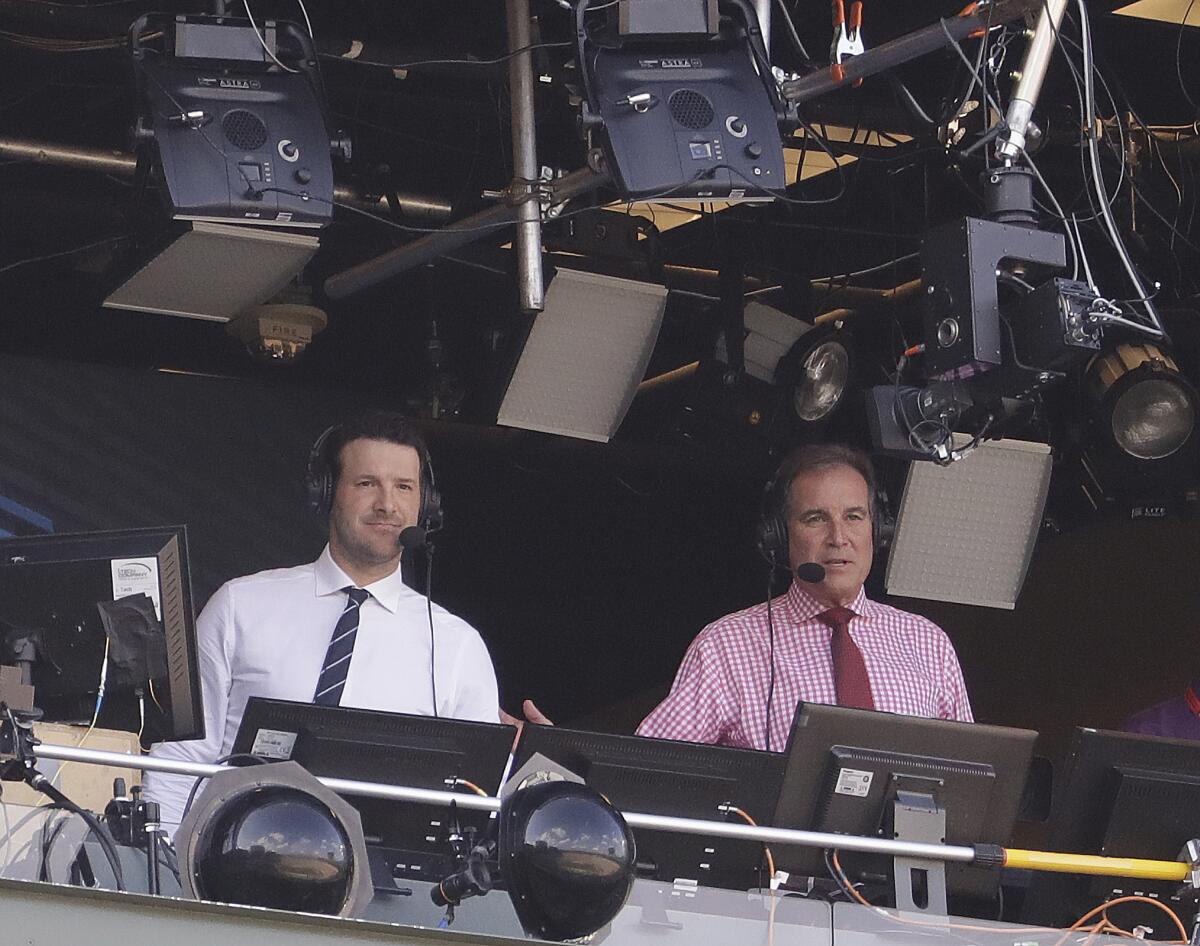
The landscape is changing too, and how the league will schedule and distribute games in years to come. As it stands, NFC games belong to Fox, and AFC games belong to CBS. That system changes next season, however, when all games essentially become free agents.
Just because an AFC team is on the road, for instance, that will not guarantee a game will belong to CBS. Every game will be a jump ball among the networks.
At the end of the 2023 season, when everything is done, the NFL will have to make sure it hits certain minimums for all of its partners, so there will be a certain number of times each NFC team will need to land on Fox. But the notion of, “Hey, it’s Rams at 49ers. Must be a Fox game,” will be done.
So it’s especially important to have the right people in those jobs. Some of the giants of the game have tried and failed. Bill Walsh. Joe Montana. Joe Namath. Even Drew Brees, seemingly created in a lab to do TV — looks, charisma, pedigree, brains — lasted on TV for only a year.
“Nobody in the history of time has ever said, `Hey, don’t tell me who wins the Super Bowl. I’m going to watch it next weekend with my friends.’ ”
— Joe Buck, ESPN broadcaster
In the pipeline is Tom Brady, who earlier this year agreed to a colossal 10-year, $375-million deal with Fox that’s due to kick in when his playing career ends. Difficult to know how he’ll do, or whether his heart will be in it. So far, Peyton Manning has resisted that well-worn path.
Moving into the No. 1 spot at Fox to replace Buck and Aikman are Kevin Burkhardt and former Pro Bowl tight end Greg Olsen. It’s got to be a little strange for Olsen that, even before he’s called a game, he’s waiting for the tap on the shoulder from Brady.
Amazon Prime is the new player in this space, and lured the legendary Michaels to launch its NFL enterprise the right way. He will be joined in the booth by color analyst Kirk Herbstreit, whose remarkable talent has pulled him in three different directions: adding Thursday night NFL games to his already full plate of ESPN’s “College GameDay” and ABC’s prime-time game of the week.
Despite a blood clot scare, a chance to call NFL games and the bumpy start of the NIL era, Kirk Herbstreit’s heart still belongs to college football.
Of transitioning from over-the-air TV to streaming, Michaels said: “I find it to be exciting in the sense that all of my friends and my kids and my grandkids all think this is about the coolest thing in the world. So even though it’s a different platform, the one thing I think you can count on is that we are not going to reinvent the wheel. We’re going to do the games. People are going to tune in to watch the games, and we’re not going to do anything that’s crazy.”
This moment in time, with a new network getting into the game, is reminiscent of David Hill launching Fox Sports in 1994 and bringing Madden over from CBS to reunite him with his CBS booth partner Summerall. Fox paid Madden $8 million a year, which would have been more than $15 million in today’s dollars.
Rupert Murdoch had to prove he was serious about broadcasting football in the U.S. What did that do? He got the NFL rights and used them to turn small Fox affiliates all over the country from UHF to VHF channels. Football — and really, Madden — was the cornerstone that built Murdoch’s network from the ground up.
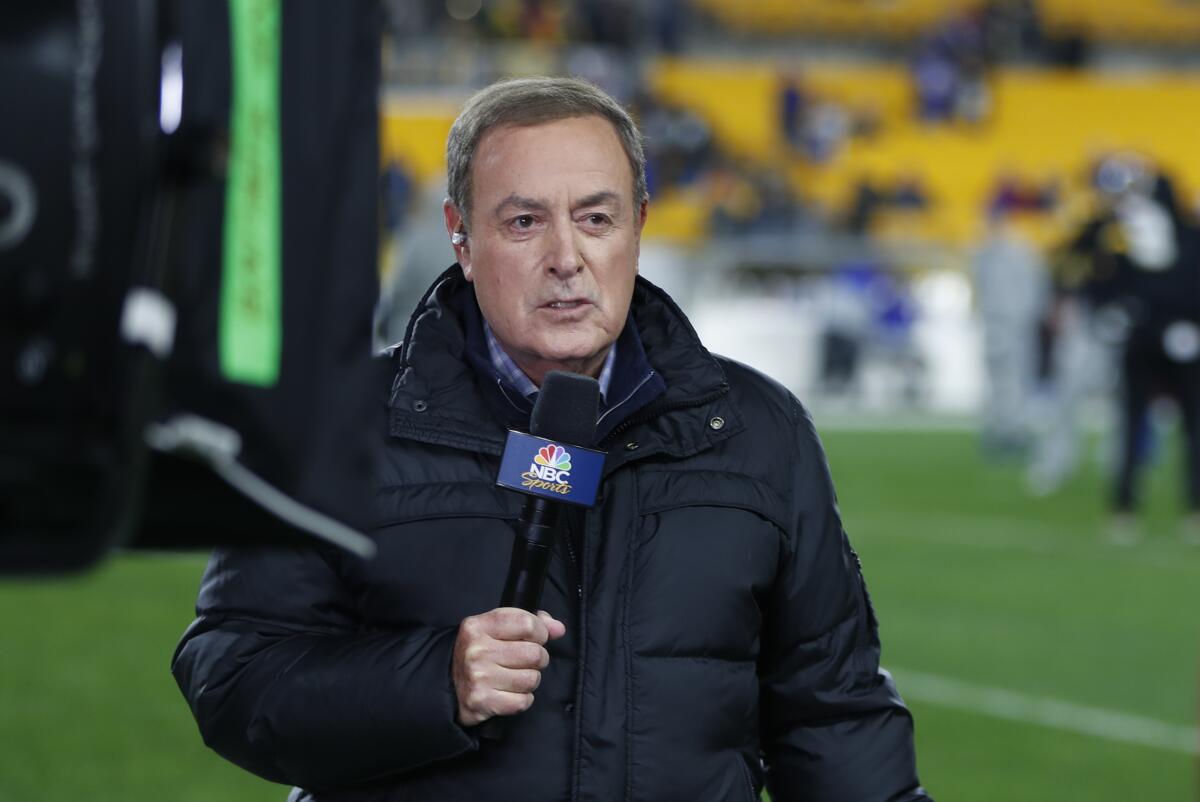
“John summed up everything in one sentence: `I tell them what they’re seeing but not seeing,’ ” Hill said. “The bond between the announcer and the audience is far more than a network logo.”
As NBC showed in Thursday night’s Kickoff Opener, the transition to Tirico will be a smooth one. He and analyst Cris Collinsworth have worked 22 games together since 2016 and already have that easy chemistry every broadcast team strives to find.
“It’s all first nature, and that means we don’t have to worry about the artificial stuff,” said Tirico, the in-studio host of NBC’s “Football Night in America” the last five years. “We can just worry about doing our jobs because the connectivity of the group working together is going to take care of itself and already has.”
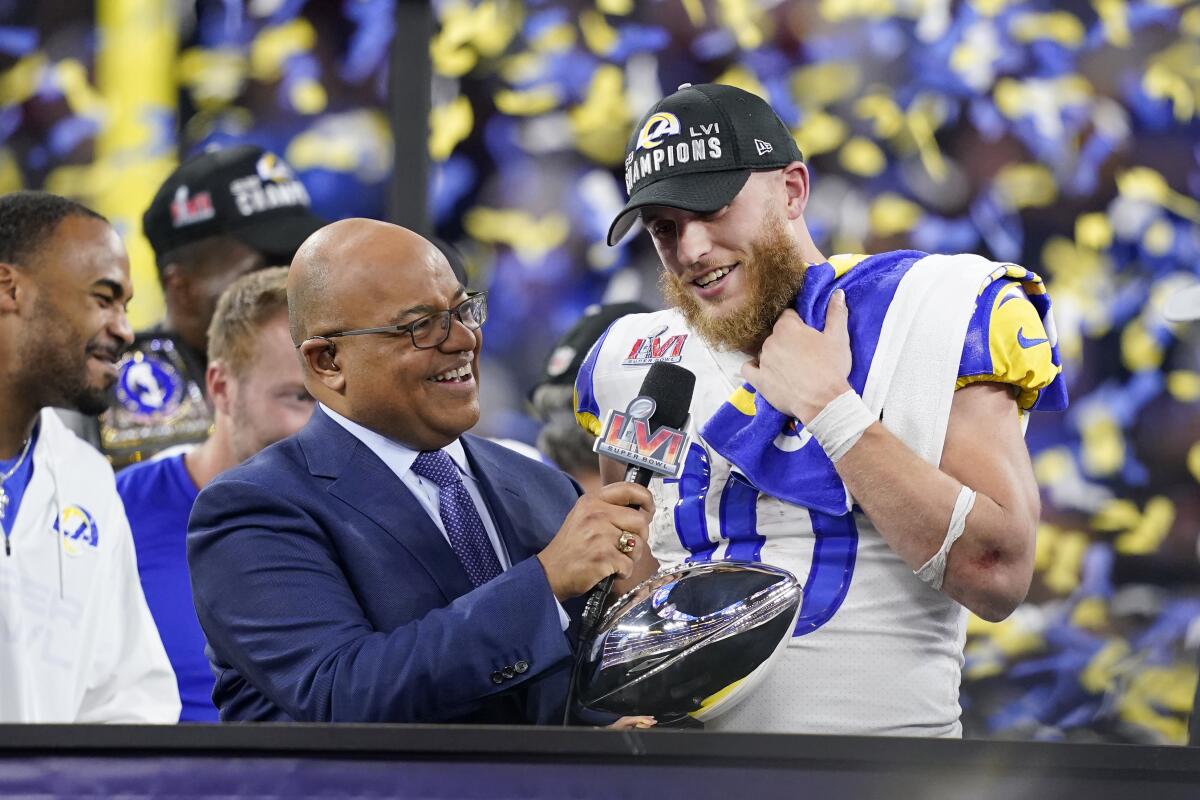
“Sunday Night Football” has been the most-watched show in prime time an unprecedented 11 years in a row. With Tirico and Collinsworth in the booth and Melissa Stark on the sideline, NBC is rich with experience. The network lost producer Fred Gaudelli to Amazon but retained Drew Esocoff, who is in his 23rd season directing NFL prime-time games and in December will be inducted into the sports broadcasting Hall of Fame.
Taking over for Gaudelli is the seasoned Rob Hyland, whom over the last 25 years NBC has entrusted with some of its biggest events, including the Olympics, the Kentucky Derby and Notre Dame football.
“The presentation might look a little different,” Hyland said. “Some of the camera angles may be unique and new to this season. But what has made the show so successful will continue moving forward.”
Complete coverage from the Los Angeles Times highlighting what to expect during the 2022 NFL season as the Rams look to defend their Super Bowl title.
Two years ago, ESPN attempted to make a deal to acquire Michaels, but NBC — even with a plan to eventually replace him with Tirico — wouldn’t let him go. Had Fox not allowed Buck out of his contract a year early, Michaels likely would have wound up at ESPN with Aikman. Michaels had done 20 years of “Monday Night Football” at ABC before his 16 years at NBC.
For Buck, the son of late announcer Jack Buck, moving to Monday nights conjures all sorts of childhood memories.
“When I was a kid going to football games with my dad, when he was doing Monday Night Football games radio with Hank Stram, the national radio booth was like a makeshift broom closet,” Buck said. “I was a little kid in the back of that booth looking two doors down at Howard Cosell and Don Meredith and Frank Gifford, with the bright lights and the yellow jackets and beehive of activity. I thought, ‘Man, I thought what my dad was doing was cool. What is that?’
“It’s that theme song and halftime highlights and blending entertainment and sports. It’s a special television property that I’m humbled to get a chance to make my own.”
Ask the L.A. Times’ football team your questions about Los Angeles’ local teams and we will try to answer them.
More to Read
Go beyond the scoreboard
Get the latest on L.A.'s teams in the daily Sports Report newsletter.
You may occasionally receive promotional content from the Los Angeles Times.

